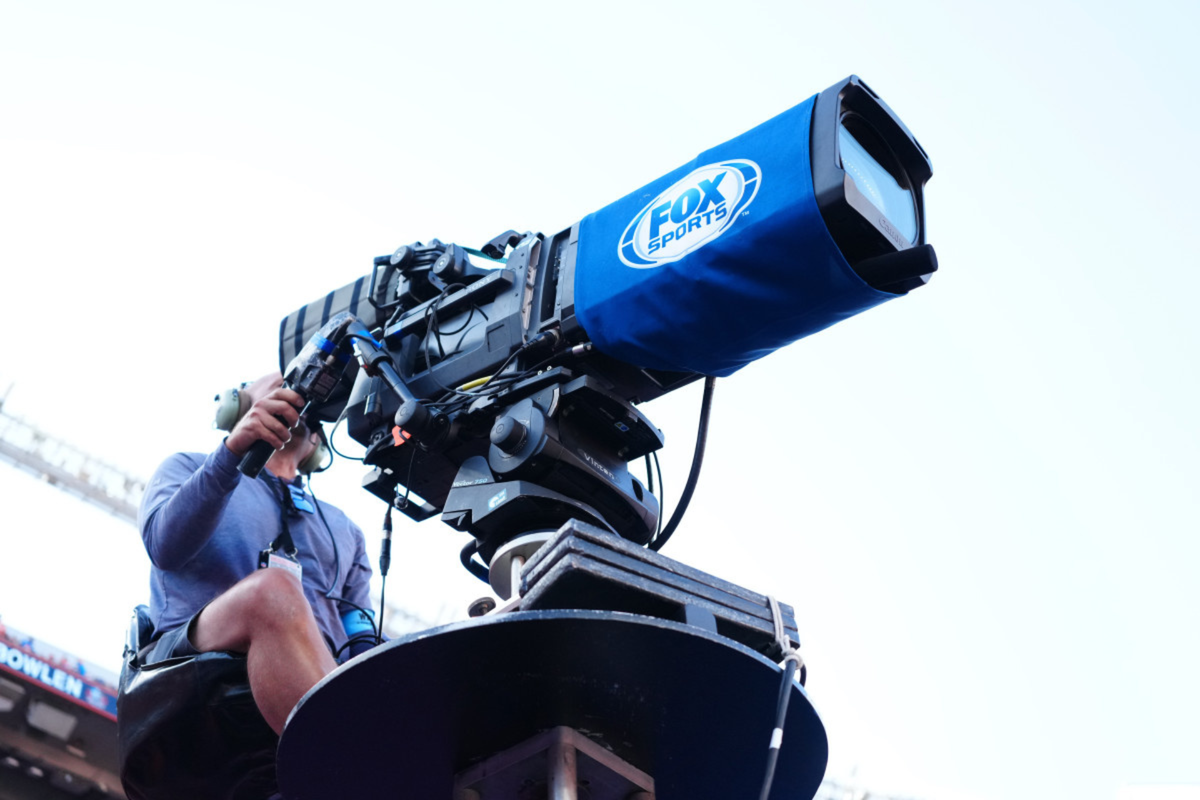
Imago
Fox Sports (Camera) (source:X)

Imago
Fox Sports (Camera) (source:X)

Imago
Fox Sports (Camera) (source:X)

Imago
Fox Sports (Camera) (source:X)
Winning races and flashing smiles on the tracks and podiums seem standard in NASCAR, but regrets often linger beneath those moments. Jamie McMurray, also known as “Jamie Mac,” racked up seven Cup Series victories, including the 2010 Daytona 500 and Brickyard 400, during his 16-year full-time career that ended in 2018. He transitioned to FOX Sports as a broadcaster in 2019, bringing his Missouri roots and straightforward analysis to millions, influencing how fans see the sport’s highs and lows. But is this the way McMurray wanted his life journey mapped out? McMurray doesn’t agree when he looks back in hindsight.
Watch What’s Trending Now!
McMurray’s insights stem from his 583 Cup starts, with 63 top-fives and a best points finish of 11th in 2014. Like Dale Earnhardt Jr., who in 2025 admitted regretting his 2017 retirement due to concussions despite health risks, drivers sometimes share lingering thoughts years later. McMurray’s broadcasting role adds value by spotlighting driver pressures, but his recent confession on Kevin Harvick’s podcast reveals a personal side.
Jamie McMurray’s deepest racing regret exposed
Jamie McMurray opened up about wishing he could reverse his career path for a better perspective. On Harvick’s Happy Hour podcast, he said, “I wish I could do everything backwards. And what I mean by that is I wish I could have done TV first because if I could have, when I went back to my career, I would have handled things completely differently, whether it was interviews or what I found value in or seeing the other side of it.” This stems from his shift to FOX, where analyzing races showed him the media’s side, contrasting his driving days focused on performance.
His 2002 breakthrough win at Charlotte as a substitute for Sterling Marlin highlighted early pressure, setting a tone of intensity over enjoyment. His biggest regret? Not savoring the journey. McMurray confessed, “My biggest regret in racing is not enjoying it.” He tied this to the high-stakes environment where mistakes hit hard, noting, you get mad because someone else made a mistake that cost, and it’s your name on the door.”
“My biggest regret in racing is not enjoying it.” @jamiemcmurray looks back on his career and tells @KevinHarvick that he wishes he “could do everything backwards.” pic.twitter.com/nEvo1ydxdF
— HarvickHappyHour (@HarvickHappyPod) August 14, 2025
This echoes his 2013 season with 36 starts but no wins, amplifying frustration amid team changes. Background traces to his karting roots in 1983, where fun dominated before professional demands, like his 2003 Rookie of the Year title, turned racing into a grind. McMurray elaborated on the blame game, saying, “there’s very few people in professional anything, whether it’s racing, I don’t care what sport it is to have fun.” Substantiated by his 168 Xfinity starts with eight wins, the pressure built as expectations rose, especially after Ganassi‘s 2015 merger.
McMurray’s 2010 sweep of Daytona and Indianapolis brought joy, but later years focused on survival, like 20th in 2017 points, fueling this regret seven years post-retirement. If regret can teach, McMurray’s next moves show how to convert hindsight into helpful action for fans and drivers alike.
How McMurray is using hindsight to add value on TV
Jamie McMurray’s FOX Sports role since 2019 leverages his 16-year racing career to deliver insightful commentary. His Happy Hour podcast reflections show a deeper understanding of racing’s pressures, informing his on-air discussions. In 2024 broadcasts, like Bristol’s night race, he explained setup choices and driver decisions clearly, helping fans grasp why split-second calls matter. His experience as a seven-time Cup winner adds weight to every word.
McMurray’s presence gives FOX a trusted voice to break down technical terms, like aero push, into stories fans relate to. NASCAR’s push to grow viewership, 5.8 million watched the 2020 Daytona 500, relies on analysts like McMurray to keep core fans while drawing new ones. His 2024 post-race interviews, praised on X for clarity, show drivers like Kyle Busch nodding to broadcaster insights, hinting at McMurray’s influence.
McMurray’s regret about not enjoying racing shapes a broader message: value the journey. His 2024 commentary urges drivers to find balance, as seen in his Watkins Glen analysis of mental focus. For fans, his broadcasts clarify the sport’s complexities. For racers, it’s a nudge to build legacies beyond wins, rooted in his own reflections seven years after retiring.



